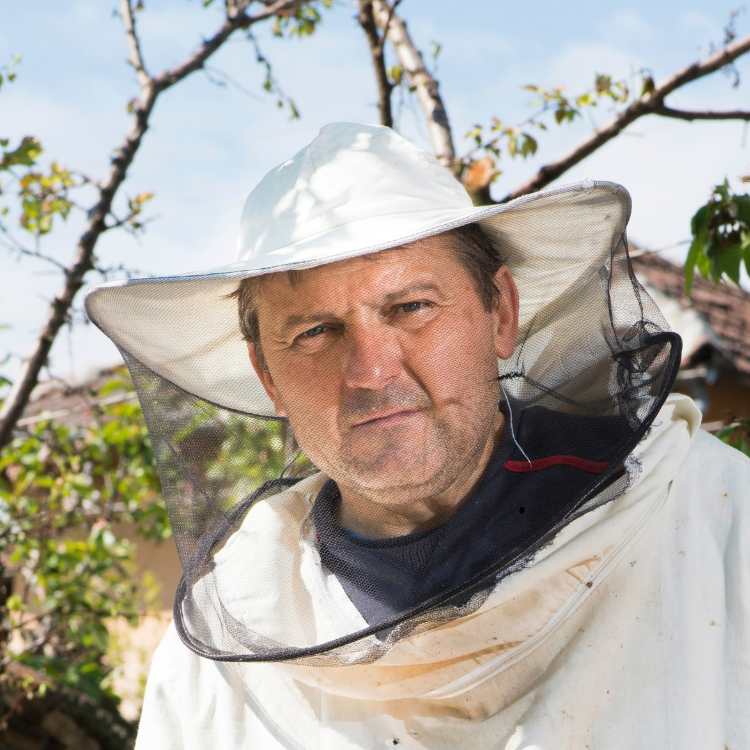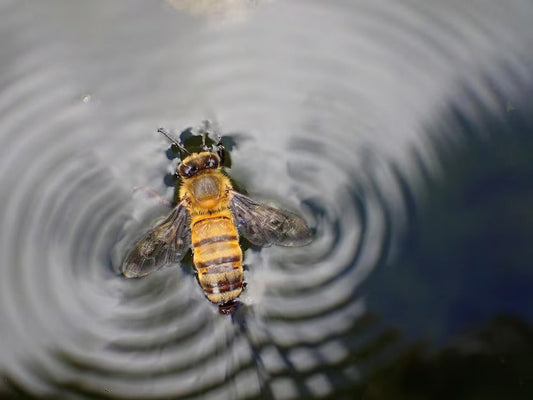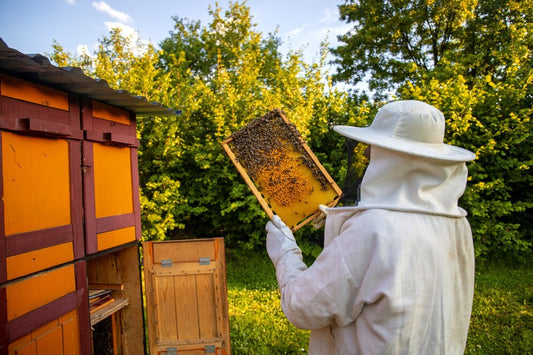Finding dead bees in house can be concerning, especially if it happens frequently or out of the blue. You might begin thinking that something is wrong with the environment or nearby hive activity.
You need to understand why this happens. Here is a simple explanation of what it may mean, the usual reasons behind it, and what you can do to stop it and help the bees.
1. Bees May Be Looking for a New Home
If you see dead bees in house, it’s possible a swarm was nearby and a few bees got lost inside your home. Bees sometimes enter houses by tiny openings or open windows during their exploration. Most of the time, bees visit safe places because they are looking for a home. At other times, they might be looking for some temporary resting place where they can recharge to rest before continuing their search.
Additionally, the swarming season may cause more activity around homes, and with it comes the increased chance of some finding their way indoors. Keep an eye on nearby garden spaces where swarms may land for a while.
2. Seasonal Changes
Bees are generally more active in some seasons. In spring and summer, bees tend to find nectar and collect food, so they have more work. In the cold season, some bees will get weak and die before they can make their way back to the hive because of the cold.
Drops in temperature during spring can also cause weaker bees to seek warmth indoors. It's not always a big deal seeing dead bees in house as the seasons change, it can be part of the cycle.
3. Possible Hive Nearby
If you find dead bees in house regularly, then it is likely that there is a hive nearby. Bees might accidentally enter your house when they fly close to the entry of the hive. Bees may get confused if there is a hidden hive in your walls or attic and may become more likely to come inside.
You can also hear a buzzing sound inside the walls, or you might notice more bees near vents and cracks. If so, it's a good time to call for a beekeeper.
4. Pesticide Exposure
Bees are highly sensitive to pesticides and other poisonous chemicals. A small amount can cause them damage. If you or your neighbors spray pesticides to kill bugs, the bees can get confused and not know where to go. This may lead to the death of bees in house since the chemicals weaken them and make them unable to fly well.
The pesticides may also affect their brains, making them not know where to go. Even weed killers sprayed near flowers can harm the health of bees. Try using fewer harmful chemicals around your house to help save local bees.

5. Indoor Light Attraction
Bees can get confused by indoor lights, especially at night. Lights within houses can confuse the bees, particularly at night. They might continue flying toward the light, hitting windows or glass repeatedly, until they are weak or die.
If you find dead bees in house, you could consider turning off additional lights by windows or even blocking sources of light that would attract them into your house during the night. Bees easily get confused and lose their direction by artificial light sources simulating the sun or moon. If you see this a lot, try using dimmer lights or closing the curtains at sunset to stop bees from coming inside.
6. Old or Weak Bees
Sometimes, you may simply be seeing older dead bees in house that have reached the end of their life cycle. Worker bees only live a few weeks to a few months, depending on the season and their role within the hive. As they age, they may become less efficient at navigating and more prone to wandering indoors as they become weaker.
When bees forage for long hours, they can also experience exhaustion and enter homes by mistake in search of shelter. If you see bees crawling instead of flying, it may be a sign that they are just too weak or old.
7. Impact of Weather Conditions
Weather changes, especially sudden strong winds, unexpected rain, or extreme heat, can be stressful for bees, causing them to lose strength and fly back to the hive more poorly. Disoriented or exhausted bees may seek refuge indoors.
In such cases, dead bees in house might be related to these environmental stressors. Young forager bees are especially confused by cold snaps during warmer months. You can install small outdoor shelters where the bees can safely rest before they go back to their hive.

What You Can Do
-
Seal Cracks and Openings: Check your windows, doors, and walls for any small openings where bees might enter. Weatherproofing can help reduce entry points.
-
Avoid Pesticides: Try to use natural methods to keep pests away so you don’t harm the bees.
-
Turn Off Unnecessary Lights: Use curtains or close blinds at night to prevent bees from being drawn inside.
-
Call a Beekeeper: If you suspect there is a hive in or near your home, a local beekeeper can help safely remove it. Beekeepers can often relocate hives without harming the colony.
-
Keep Outdoor Areas Clean: Fallen fruit, flowers, or sugary spills can attract bees. Keep outdoor areas free of debris that may bring bees close to the house.
Wrapping up
Finding dead bees in the house can have simple explanations, ranging from normal life cycles to environmental changes. It might be due to old age, weather conditions, or nearby activity. Pay attention to the patterns and take small steps to prevent more bees from coming inside. By creating a bee-friendly but secure home, you can reduce this issue and help protect local bees.
Ain’t it fun learning about the wonderful world of bees? Read our full blog for more inspiration.





